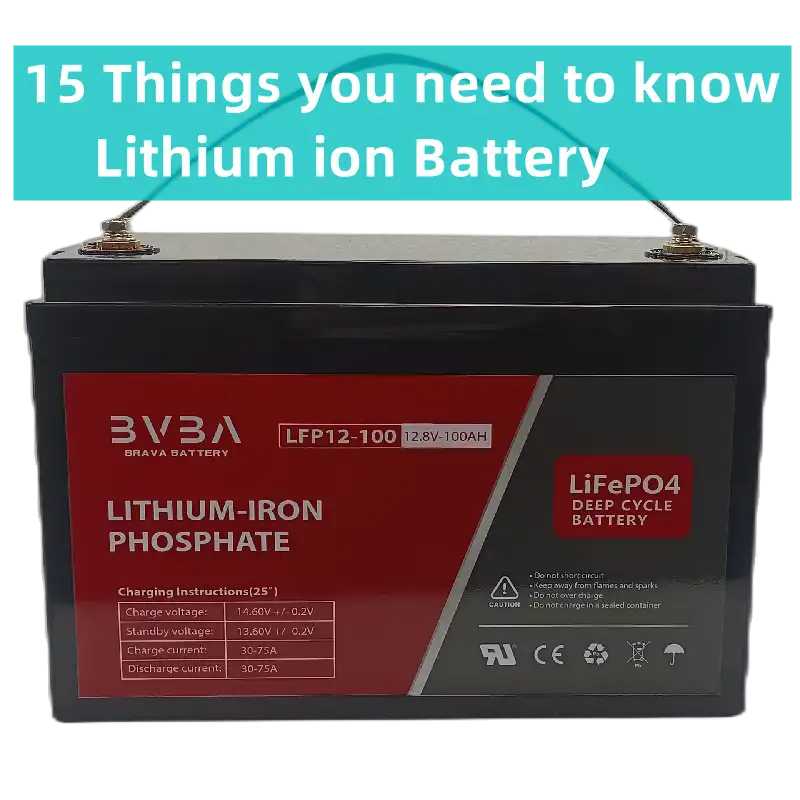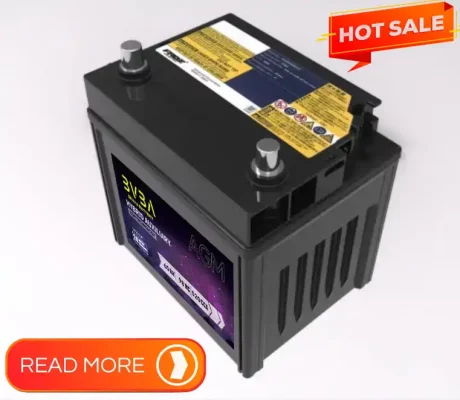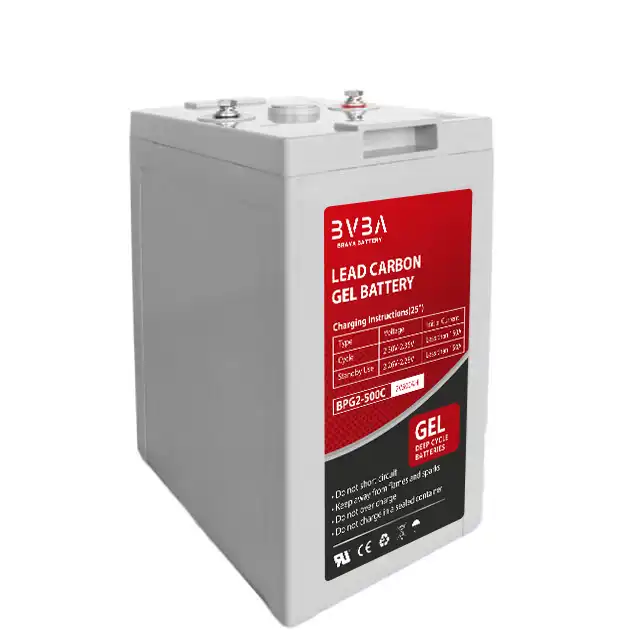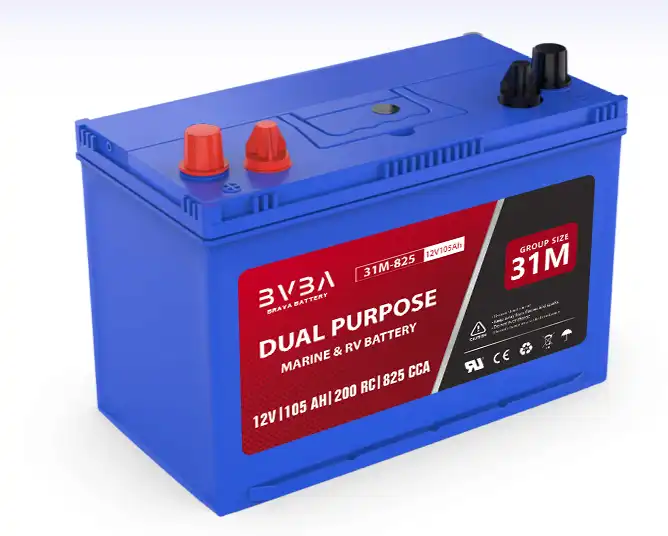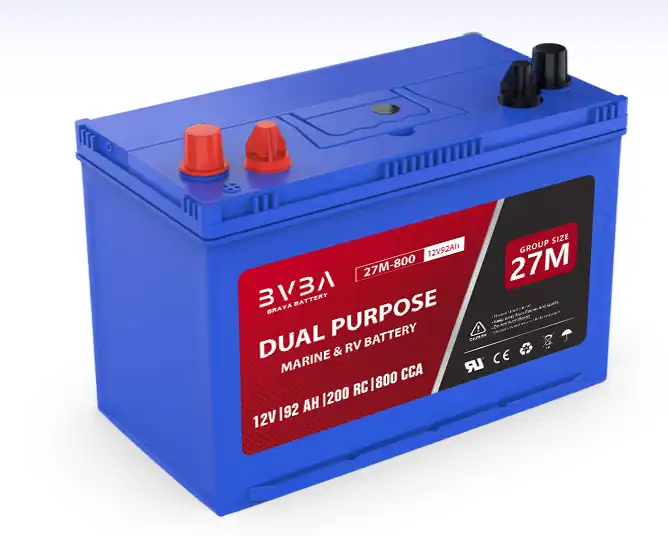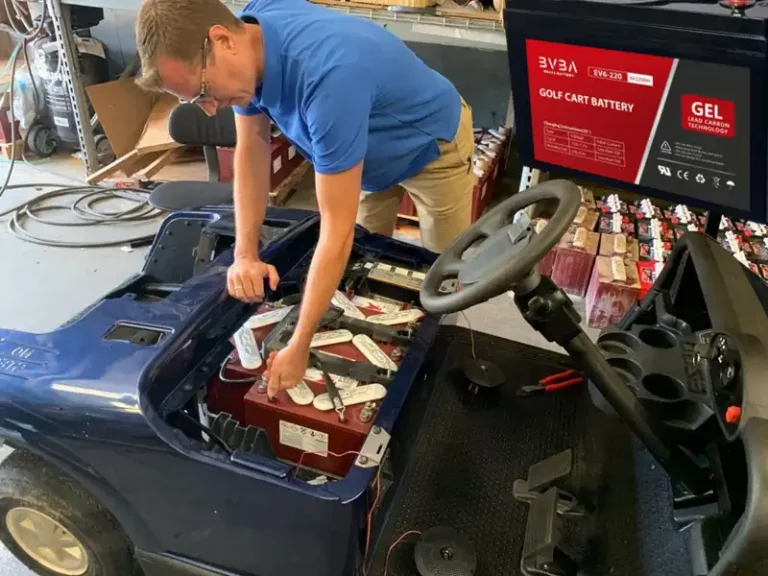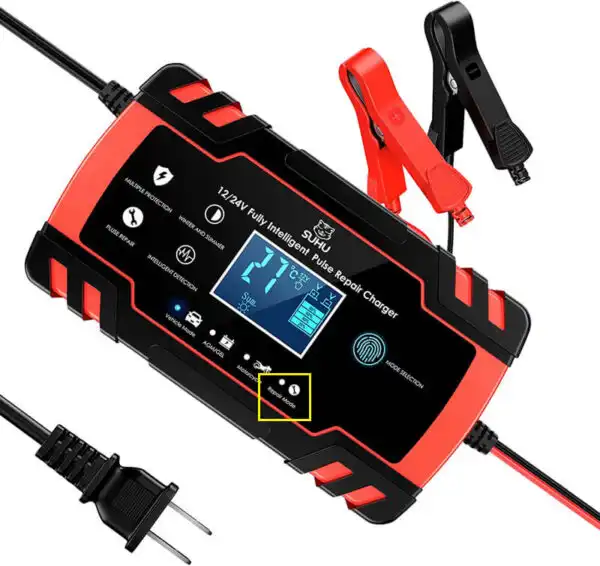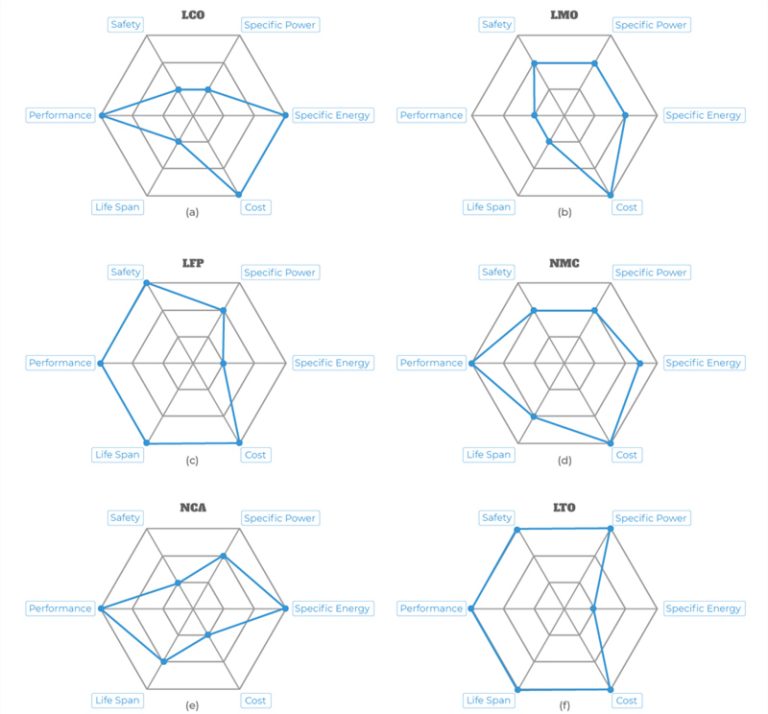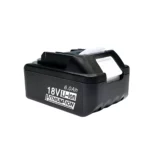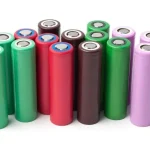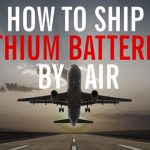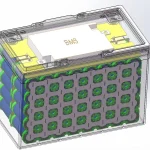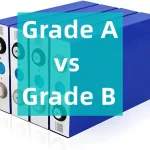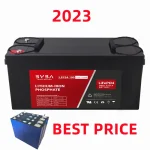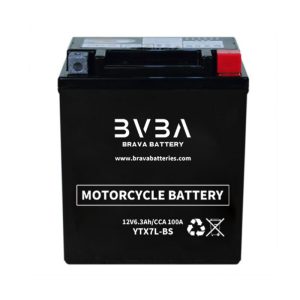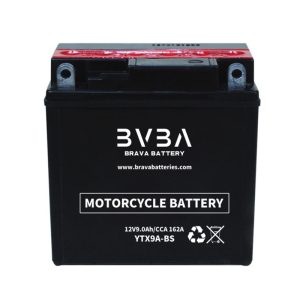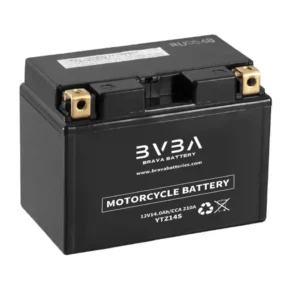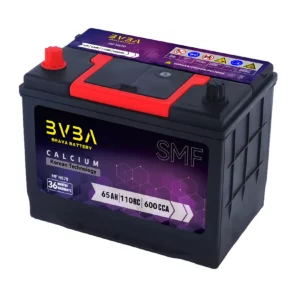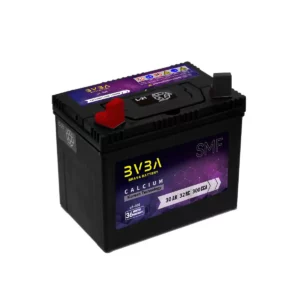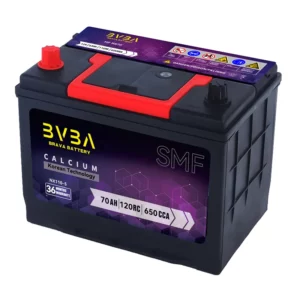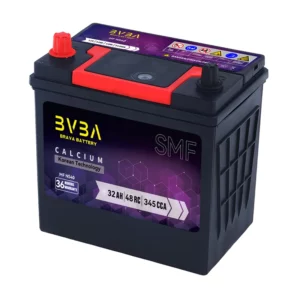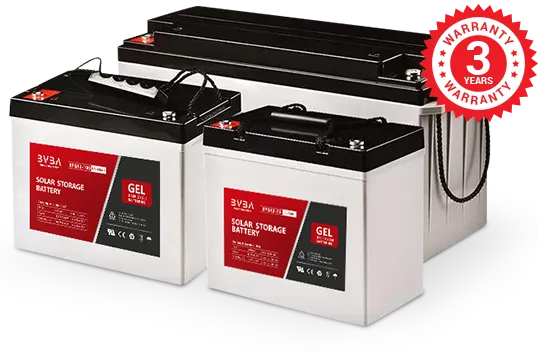What is a lithium-ion battery and how does it work?
A lithium-ion battery is an advanced battery technology that uses lithium ions as a key component of its electrochemistry. During a discharge cycle, lithium atoms in the anode are ionized and separated from their electrons. The lithium ions move from the anode and pass through the electrolyte until they reach the cathode, where they recombine with their electrons and electrically neutralize. The lithium ions are small enough to be able to move through a micro-permeable separator between the anode and cathode. In part because of lithium’s small size (third only to hydrogen and helium), Li-ion batteries are capable of having a very high voltage and charge storage per unit mass and unit volume.
Li-ion batteries can use a number of different materials as electrodes. The most common combination is that of lithium cobalt oxide (cathode) and graphite (anode), which is most commonly found in portable electronic devices such as cellphones and laptops. Other cathode materials include lithium manganese oxide (used in hybrid electric and electric automobiles) and lithium iron phosphate. Li-ion batteries typically use ether (a class of organic compounds) as an electrolyte.
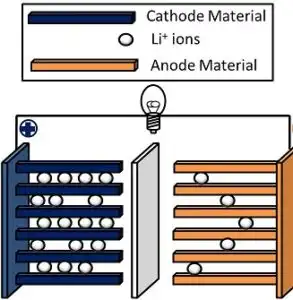
Schematic of a Lithium-ion battery
What are some advantages of Lithium-ion batteries?
Compared to the other high-quality rechargeable battery technologies (nickel-cadmium or nickel-metal-hydride), Li-ion batteries have a number of advantages. They have one of the highest energy densities of any battery technology today (100-265 Wh/kg or 250-670 Wh/L). In addition, Li-ion battery cells can deliver up to 3.6 Volts, 3 times higher than technologies such as Ni-Cd or Ni-MH. This means that they can deliver large amounts of current for high-power applications, which has Li-ion batteries are also comparatively low maintenance, and do not require scheduled cycling to maintain their battery life. Li-ion batteries have no memory effect, a detrimental process where repeated partial discharge/charge cycles can cause a battery to ‘remember’ a lower capacity. This is an advantage over both Ni-Cd and Ni-MH, which display this effect. Li-ion batteries also have low self-discharge rate of around 1.5-2% per month. They do not contain toxic cadmium, which makes them easier to dispose of than Ni-Cd batteries.
Due to these advantages, Li-ion batteries have displaced Ni-Cd batteries as the market leader in portable electronic devices (such as smartphones and laptops). Li-ion batteries are also used to power electrical systems for some aerospace applications, notable in the new and more environmentally friendly Boeing 787, where weight is a significant cost factor. From a clean energy perspective, much of the promise of Li-ion technology comes from their potential applications in battery-powered cars. Currently, the bestselling electric cars, the Nissan Leaf and the Tesla Model S, both use Li-ion batteries as their primary fuel source.
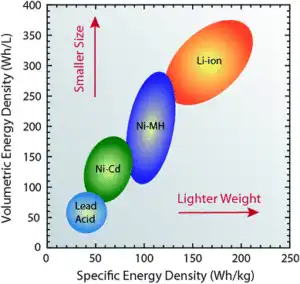
What are some disadvantages of Lithium-ion battery?
Despite their technological promise, Li-ion batteries still have a number of shortcomings, particularly with regards to safety. Li-ion batteries have a tendency to overheat, and can be damaged at high voltages. In some cases this can lead to thermal runaway and combustion. This has caused significant problems, notably the grounding of the Boeing 787 fleet after onboard battery fires were reported. Because of the risks associated with these batteries, a number of shipping companies refuse to perform bulk shipments of batteries by plane. Li-ion batteries require safety mechanisms to limit voltage and internal pressures, which can increase weight and limit performance in some cases. Li-ion batteries are also subject to aging, meaning that they can lose capacity and frequently fail after a number of years. Another factor limiting their widespread adoption is their cost, which is around 40% higher than Ni-Cd. Addressing these issues is a key component for current research into the technology. Finally, despite the high energy density of Li-ion compared to other kinds of batteries, they are still around a hundred times less energy dense than gasoline (which contains 12,700 Wh/kg by mass or 8760 Wh/L by volume).
Lithium-Ion Battery for Camping, Caravanning, 4WD Auxiliary and more!
Compared to lead acid batteries, lithium ion batteries are lighter, smaller, have longer cycle life, and are able to discharge to a lower level without damaging the battery’s life expectancy.
This makes Lithium Ion batteries superior to lead acid and AGM deep cycle batteries for many applications, including 4WDs, boats, caravans and forklifts.
Wwe stock and recommend the Lithium Iron Phosphate range, known as LiFePO4. LiFePO4 batteries are known for their superior safety – not prone to overheating like some other lithium ion batteries.
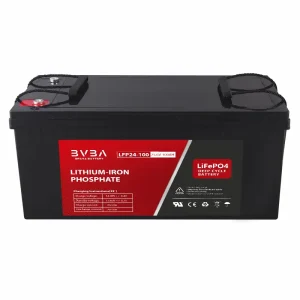
WHY IS LITHIUM THE IDEAL POWER SOURCE FOR CARAVAN AND CAMPING ADVENTURES?
120ah lithium deep cycle battery (one of our highest sellers and simply the best battery for caravan, camping and 4WD off-road enthusiasts) for their life-changing caravan trip around Australia. Saving weight = saving fuel, and Keelan cuts 60kg from his GCM just by switching to lithium deep cycle batteries – the perfect battery bank for the big lap.
Did you know we now have a 100% usable capacity, IP67 waterproof 120Ah battery?
If you’re looking for bigger capacity from one battery, check out the 200ah lithium battery or our very latest IP67 waterproof 100% usable capacity 240ah lithium battery.
WHAT ARE THE MAIN BENEFITS OF LITHIUM DEEP CYCLE BATTERIES?
Our 12V LiFePO4 lithium deep cycle batteries have been designed with the Australian outdoors in mind. LiFePO4 batteries are tough, damage-resistant, waterproof, and deliver 12 volts at a constant discharge rate. If you love camping, you’ll be impressed by the long lasting power of these batteries.
These batteries are so stable that you won’t see a drop in power until the last amp has been delivered. These batteries deliver more power than an AGM battery. You will be safe from fumes, acid spills and they weigh approx. 1/3 of a traditional battery.
HOW DO I RECHARGE A 12V LITHIUM BATTERY?
Due to its low resistance, a lithium deep cycle battery is easily and rapidly rechargeable using solar panels, AC and DC to DC battery chargers. Safe to use even on the hottest summer day with operational temperatures up to 80C. Lithium deep cycle batteries are maintenance-free. They’re so much better than lead-acid batteries that may be in your kit now.
HOW LONG DOES IT TAKE TO CHARGE THESE BATTERIES?
You can charge lithium batteries in as little as 2-4 hours. As some of the lithium deep cycle models having a huge capacity, a complete charge can take up to 12 hours. Just recharge the batteries when they are low, and away you go. With a DC to DC charger (the perfect accompaniment), you can even charge the battery while you’re driving, without solar. Fast charging without fuss!
HOW MANY BATTERIES DO I NEED?
A lithium ion battery should be the heart of every power system. These batteries are so handy if you are going on long trips. You still need to recharge, but they last so much longer. We all have mobile phones, so we all need to recharge them.
When camping, consider the power needs of others that travel with you. Have you got an Engel fridge-freezer? Will you need to power a coffee machine? What about laptops and tablets? Maybe even a hair straightener? You’ll be surprised how many mod-cons you or your partner wished you packed. These little luxuries can make camping so much more enjoyable for your whole family. By calculating how many amps you need, you can work out which battery and how many you need to power all your devices.
WHAT DEVICES CAN A LITHIUM-ion BATTERY CHARGE?
A LiFePO4 lithium deep cycle battery can power most off-road vehicles and caravans, suitable for portable fridges, washing machines, inverters and more. These batteries are perfect for any camping trip where you’re running everything but the kitchen sink, and still have power at your fingertips. Lithium deep cycle batteries are one of the safest ways to power your site. They are not as volatile as petrol, gas, or acid-filled AGM battery or lead-acid models. They’re lightweight, too – weighing 60% less than standard AGM or lead batteries.
WHAT IS THE DIFFERENCE BETWEEN A LITHIUM AND AN AGM OR LEAD-ACID BATTERY?
A LiFePO4 deep cycle lithium lasts about 4 times as long as an AGM or lead-acid battery. This long lifespan is because they can cycle over 2,000 times while AGM or lead-acid is good for about 500 cycles (A cycle is the number of times a battery can discharge and then fully charge, 1 cycle). A lithium deep cycle model will store more power, you’ll get more charges out of it, they are usually a drop-in replacement battery, and you can power more devices at once. That’s what makes these batteries so much better than the older technology. Our lithium deep cycle range offer unrivalled performance over other batteries.
IS A LITHIUM CAR BATTERY HEAVY?
A LifePO4 lithium car battery that can discharge about 100Ah will weigh around 11 – 13kg, while an AGM or lead-acid will weigh around 28Kg. Almost 1/3 the weight. A LifePO4 battery recharges faster due to its lower internal resistance and makes it a far better option for camping.
HOW LONG DOES THE AVERAGE BATTERY LAST?
On average most people will see at least seven years of battery life and reliable power before a noticeable decrease in performance from Brava lithium deep cycle batteries. If you are using them under the bonnet and exposing them to excessive heat, then you may see a decrease in battery life over a long period of time. Our lithium batteries are fully tested under varied and harsh, Australian conditions. They are safe from decay, explosion, and overheating. The lithium deep cycle range provides reliable, longer lasting power.
Our LiFePO4 batteries have cell balancing that increases their lifespan. The Brava lithium deep cycle range has an internal battery management system (BMS) that controls the power going in and out.
How long the lithium deep cycle lasts will depend on how many, and what type, of appliances are drawing from it. Using a battery volt meter can help in knowing how much power is left before they need to be recharged. Handy if you’re out camping and need enough power to make it through the night.
ARE YOUR LIFEPO4 AND LITHIUM ION BATTERY SAFE?
A question we’re constantly asked is ‘are lithium batteries dangerous?’. Mobile phone lithium batteries have been known to overheat and explode. Our LiFePO4 batteries use a battery management system (BMS) and the material inside is lithium iron phosphate. They are still lithium batteries but are more evolved and modified for our harsh Australian environment.
We strongly recommend buying lithium deep cycle batteries and chargers from an established Australian company. The Western Australian Government states: “…reputable battery manufacturers have matched battery/charger combinations which include an automatic monitoring system to detect the state of charge. When nearing full charge, the charger is switched off.”
Buying a cheap overseas battery or charger is simply not worth the risk. Our prices might be higher than some of the competition, but our batteries are Australian engineered. We’ve invested heavily in research to produce the best 12 volt lithium deep cycle battery line-up in the country.
12 volt lithium batteries are superior to their AGM or lead-acid battery counterparts. A LiFePO4 battery (aka lithium iron phosphate battery), They are very safe and used in many indoor and outdoor applications.
Our LiFePO4 and lithium-ion battery (li-ion) range is waterproof to different levels and maintenance-free, just keep them in a damage-resistant battery box for years of worry-free service. You’ll find a battery box is handier than carry straps, too.
Our LiFePO4 lithium deep cycle batteries are very safe and lightweight. They are the safest way to provide power anytime, anywhere. These batteries stay cool when charging and discharging power. They offer a stable and steady power source till the last amp is drained. This type of battery is ideal for off-road vehicles, RVs and camping.
LITHIUM-ion BATTERIES FOR CAMPING & CARAVAN, SOLAR, OFF GRID, AND MARINE
We have a variety of lithium deep cycle batteries to suit all indoor and outdoor activities. Suitable for your caravan, camper trailer, 4×4, solar panels, marine equipment, off grid solar, and just camping. All our deep cycle batteries can power, and recharge, most electronic devices.
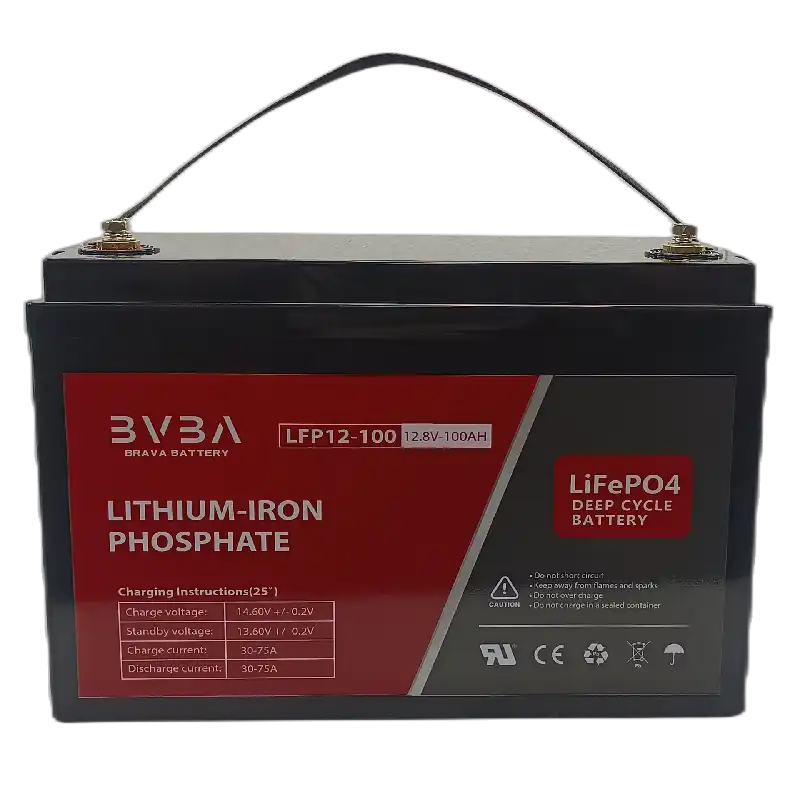
Tags: Lithium Batter Wholesale Dealers Lithium Batteries

